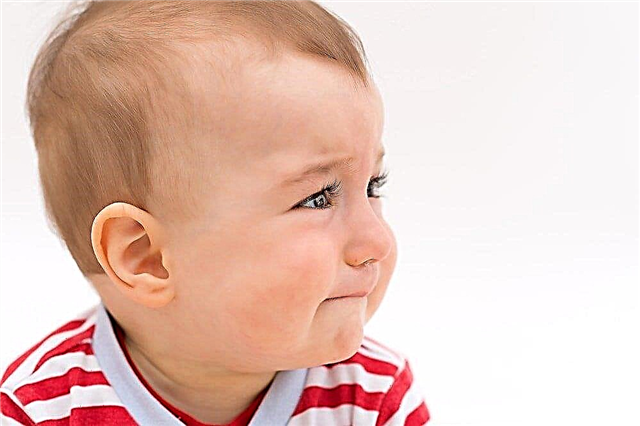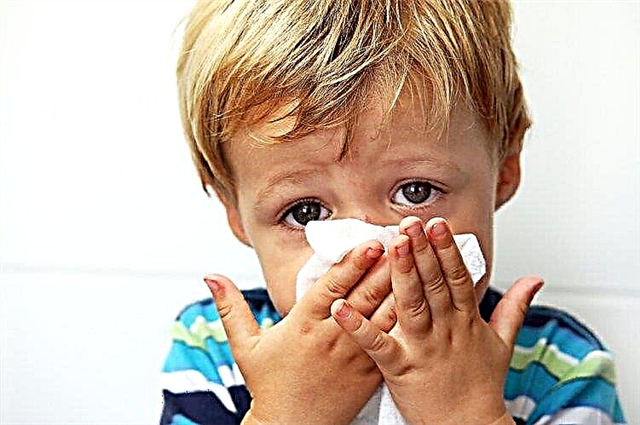Young mothers, when caring for a baby, sometimes do not pay attention to such important physiological signs as the features of feces. Meanwhile, children's experts advise: before putting a soiled diaper somewhere, you need to carefully examine its contents. Often, the state of children's bowel movements can tell a lot about the health of a child.

The contents of the diaper will tell you about the condition of the newborn
Normal bowel movements with formula and mixed feeding
Pediatricians believe that the criteria for normal bowel movements in infants can be considered in a fairly wide range. For example, it is impossible to unambiguously assess the color and consistency of feces, smell and the presence of impurities, since they can vary depending on different conditions. Therefore, those indicators that in older children will be considered a deviation from the norm are often not symptoms of diseases in infants.
The state of the baby's stool can change for various reasons, the main ones are associated with the type of feeding, the adaptation of the gastrointestinal tract to a new type of nutrition. In addition, with mixed feeding, current changes in bowel movements are influenced by the proportions of breast milk and formula.
It is important for young mothers to know what is included in the concept of a normal chair, so as not to experience unnecessary worries about the health of their child:
- The color of the stool should be brown or yellowish;
- When eating fruit, feces can become liquid, marsh-colored, with an admixture of lumps;
- Undigested formula appears in the stool with white blotches;
- Feeding with formula milk smells differently than breastfeeding;
- Loose stools are normal with mixed feeding if the baby receives more mother's milk;
- With a diet where the majority is milk formula, the feces will be thick and shaped;
- Stool frequency depends on the age of the infant, the proportions of breast milk and formula. In the first month, the newborn defecates from 3 to 10 times a day, later - up to two times.
Note! Such signs of children's bowel movements are considered the norm, since the newborn's digestive system is still being formed.
The presence of impurities in the stool with a mixed type of feeding
Parents should not be scared if, with a mixed type of feeding, various impurities appear in the baby's feces.

Loose stools are normal for mixed feeding.
The most common and safe impurities are:
- White grains are particles of undigested mixture or milk. If there are a lot of them, then this indicates overeating, which means that the baby's digestive tract cannot cope with the proposed volume of food;
- A small amount of mucus in the stool is normal. However, the volume of mucus can increase with an inappropriate mixture, premature introduction of complementary foods, intestinal infections, dysbiosis;
- The appearance of foam is considered a functional disorder, not a pathology. In infants, sometimes the stool is foamy due to colic or as a reaction to anti-colic drugs;
- The appearance of blood streaks in the feces due to problems with the mother, for example, with cracks in the nipples or due to foods in the diet of a nursing woman: tomatoes, beets.
Important! When various impurities appear, you need to monitor the general condition of the crumbs. If, in parallel with the impurities, the temperature rises, appetite and body weight are lost, you can not postpone the call to the doctor.
Causes of diarrhea in mixed feeding
When babies switch to mixed feeding, diarrhea becomes common. If mom understands the causes of diarrhea, then the liquid consistency of feces will not cause her anxiety.
Pediatricians explain that the main cause of diarrhea when switching to a mixed diet is dysbiosis, that is, a change in the composition of the intestinal microflora. In this case, the normal ratio between beneficial and harmful microbes in the digestive tract is disrupted, which affects digestion and intestinal motility.
It is important to know that the most common causes of newborn diarrhea are:
- late attachment to the breast;
- early introduction of complementary foods;
- food allergies to certain foods;
- lactose intolerance;
- chronic diseases of the gastrointestinal tract.
According to the children's doctor Komarovsky, diarrhea in an infant is normal. It often appears as a result of physical processes in the body, such as teething.
Symptoms of diarrhea in a newborn with mixed feeding
Any mother needs to be able to distinguish liquid stool in a mixed-fed baby from diarrhea. This will allow her to take the right measures, such as getting tested or adjusting her and baby's nutrition.

Diarrhea in babies has characteristic features
Distinctive symptoms of diarrhea with a mixed diet are:
- Watery stools;
- Increased frequency of bowel movements
- Bad smell of feces;
- Discoloration of feces from yellow to marsh;
- Fever and vomiting;
- Copious mucus, foam, blood streaks.
In any case, with loose stools with different symptoms, you need to pay attention to the baby's condition. If the baby is cheerful, eats well, lives according to the regimen, gains weight correctly, there is no reason to worry. Signs such as poor sleep and appetite, colic and gas, fever, blood streaks, and strange stool odors are a good reason to see a doctor.
Important! Diarrhea in a mixed-fed newborn is determined not by the number of times he defecates, but by the texture and color of the stool. For example, a watery bowel movement with mucus is indicative of diarrhea.
You need to pay attention to the color of feces with diarrhea in order to understand the reasons and consult a specialist in time. For example, swamp color is only normal in the first week. Foamy green stools with a sour odor indicate lactose intolerance. Dark stools indicate possible blood splashes.
When to see a doctor
Infant diarrhea is caused by various reasons. If the causes are natural, then the stool will return to normal within a short time. There are situations that require an immediate visit to a doctor for an analysis in order to timely identify possible diseases. Parents need to pay serious attention when a child's diarrhea is no longer a natural physiological response to nutritional errors:
- If cough and nasal congestion accompany diarrhea, then it is due to influenza or acute respiratory infections;
- Diarrhea may indicate an intestinal infection or food poisoning if copious foam is present;
- Diarrhea, along with an increase in temperature, can signal the pathology of the gastrointestinal tract, if accompanied by vomiting.
Serious causes of diarrhea
Along with the causes of diarrhea, which pediatricians consider completely natural and quickly eliminated, there are problems that require medical attention.

Late attachment to the breast can be a serious cause of diarrhea in a newborn
The most serious cause of diarrhea in an infant is dysbiosis (an imbalance between normal and pathogenic intestinal microflora). This condition occurs in the following situations:
- With late attachment to the breast, although the secreted colostrum in the mother's breast is rich in components that stimulate the development and growth of bifidobacteria. It is the lack of bifidobacteria that is manifested by diarrhea in a newborn;
- With lactose intolerance, that is, the child's body does not accept milk protein - the basis of infant nutrition. By assimilating lactose, the body receives the necessary building material for the growth and development of cells;
- For food allergies resulting in loose stools. It is diarrhea that removes allergens from the child's body, due to insufficient supply of nutrients, the baby's energy reserves are depleted, and dehydration occurs;
- For chronic diseases of the gastrointestinal tract, for example, ulcerative colitis.
Possible complications and prevention of diarrhea
Diarrhea in an infant is a fairly common occurrence, bringing problems to both the baby and the parents. Therefore, mothers ask pediatricians about what to do to stop diarrhea, and how it is dangerous for children.
Experts confirm that diarrhea in a newborn with mixed feeding, caused by serious causes, is dangerous for babies. Babies tolerate diarrhea much worse than young children. The main problem is dehydration of the body, since a loss of water in 10% of body weight can have serious consequences. Therefore, if frequent and loose stools are accompanied by an increase in temperature, it is necessary to ensure the correct drinking regime.
With prolonged diarrhea, due to a decrease in the amount of mineral salts, cramps, allergies or diseases of the gastrointestinal tract can develop.
If you do not take measures to fix loose stools, such serious complications as neurotoxicosis, infectious-toxic shock against the background of intestinal infections can occur.
Children's specialists will tell the mother what means can be used to treat a child for diarrhea so as not to harm his health. In no case should you give medications intended for adults, as they may be contraindicated in children.

Only a doctor will prescribe the correct treatment for frequent and painful stools in a baby.
Important! Before using funds for the treatment of loose stools in infants, you need to keep in mind that drugs for diarrhea are targeted at different age groups.
The medical treatment of diarrhea in children is always complemented by a gentle diet with porridge in the water and pureed soups. Oat broth and jelly, which have an enveloping effect, are useful. It is very important to provide the child with a plentiful drink, giving him water, weak or herbal tea, rosehip decoction.
Every mother in the process of raising a child is faced with such an unpleasant phenomenon as uncontrolled loose stools. Therefore, you need to know what is meant by normal stool in infants, and what is characteristic of the manifestations of diarrhea, which can lead to serious consequences. Such knowledge will help you find the right ways to help children and seek medical help in time.



